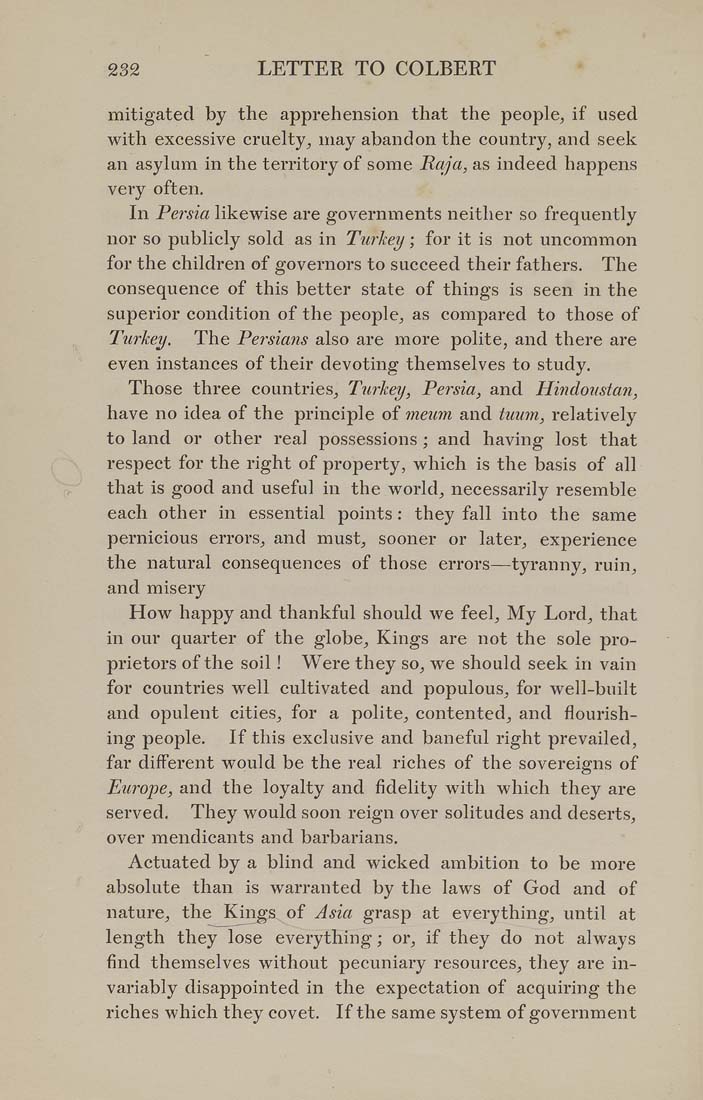232 LETTER TO COLBERT
mitigated by the apprehension that the people, if used
with excessive cruelty, may abandon the country, and seek
an asylum in the territory of some Raja, as indeed happens
very often.
In Persia likewise are governments neither so frequently
nor so publicly sold as in Turkey; for it is not uncommon
for the children of governors to succeed their fathers. The
consequence of this better state of things is seen in the
superior condition of the people, as compared to those of
Turkey. The Persians also are more polite, and there are
even instances of their devoting themselves to study.
Those three countries, Turkey, Persia, and Hindoustan,
have no idea of the principle of meum and luum, relatively
to land or other real possessions; and having lost that
respect for the right of property, which is the basis of all
that is good and useful in the world, necessarily resemble
each other in essential points : they fall into the same
pernicious errors, and must, sooner or later, experience
the natural consequences of those errors—tyranny, ruin,
and misery
How happy and thankful should we feel. My Lord, that
in our quarter of the globe. Kings are not the sole pro¬
prietors of the soil! Were they so, we should seek in vain
for countries well cultivated and populous, for well-built
and opulent cities, for a polite, contented, and flourish¬
ing people. If this exclusive and baneful right prevailed,
far different would be the real riches of the sovereigns of
Europe, and the loyalty and fidelity with which they are
served. They would soon reign over solitudes and deserts,
over inendicants and barbarians.
Actuated by a blind and wicked ambition to be more
absolute than is warranted by the laws of God and of
nature, the Kings of Asia grasp at everything, until at
length they lose everything; or, if they do not always
find themselves without pecuniary resources, they are in¬
variably disappointed in the expectation of acquiring the
riches which they covet. If the same system of government
|








